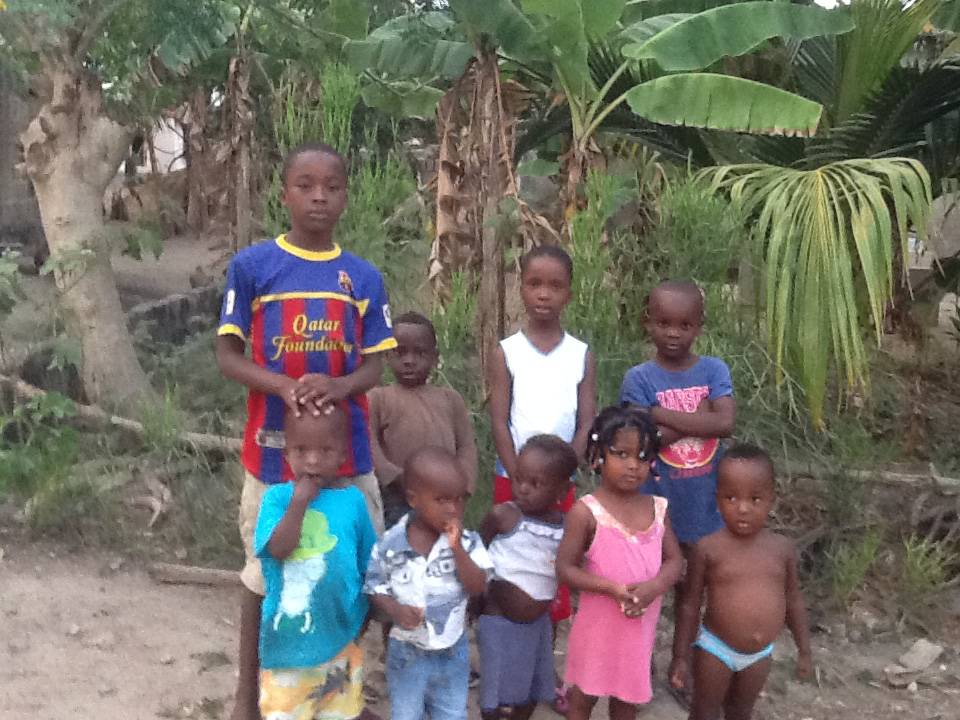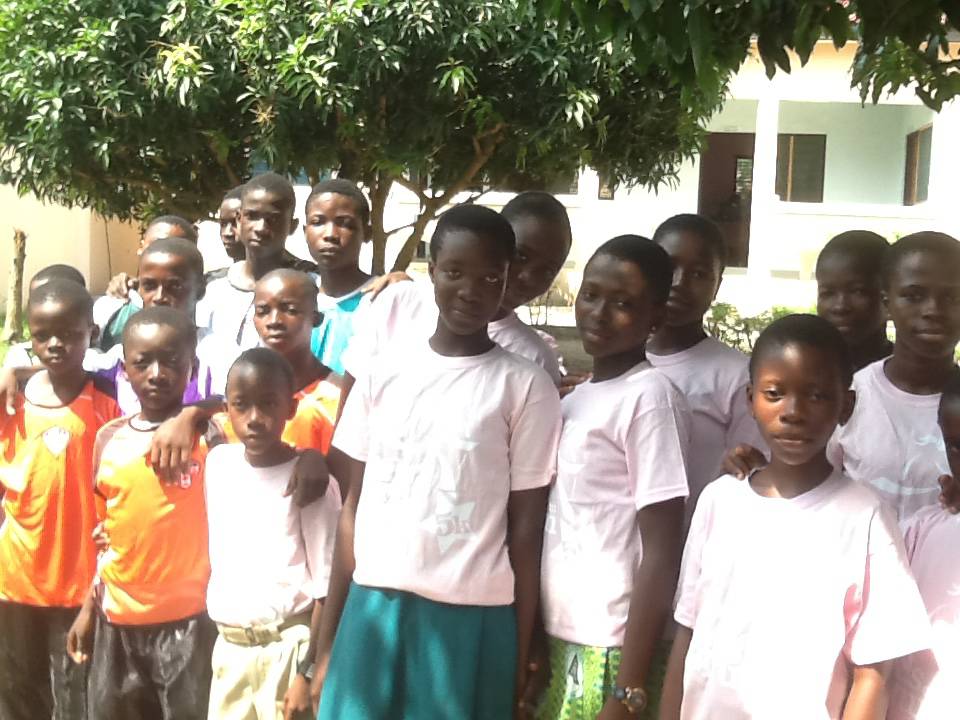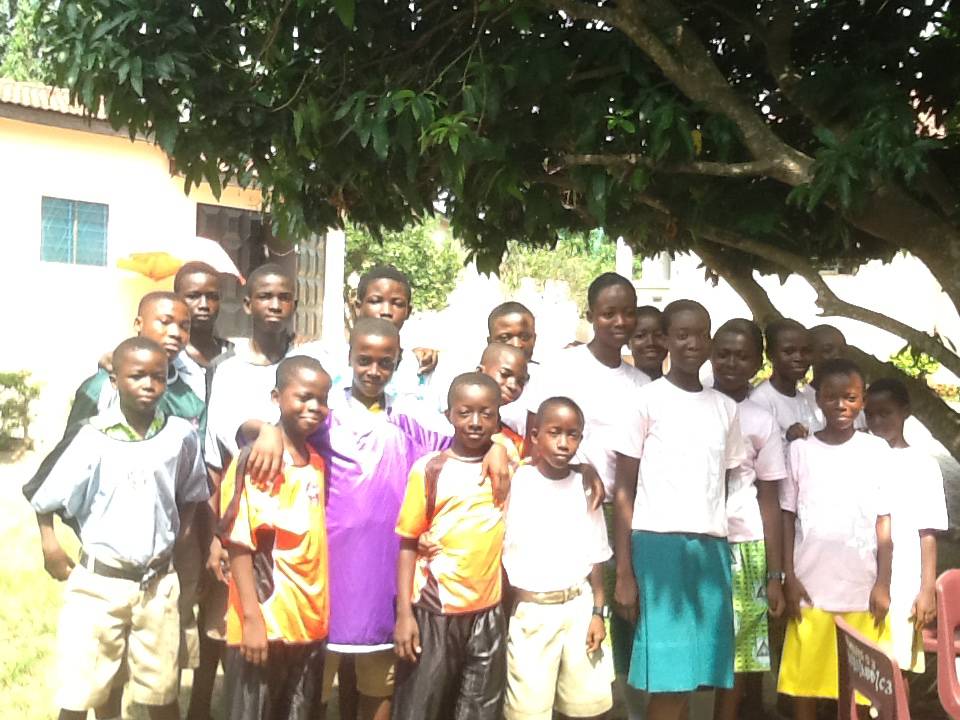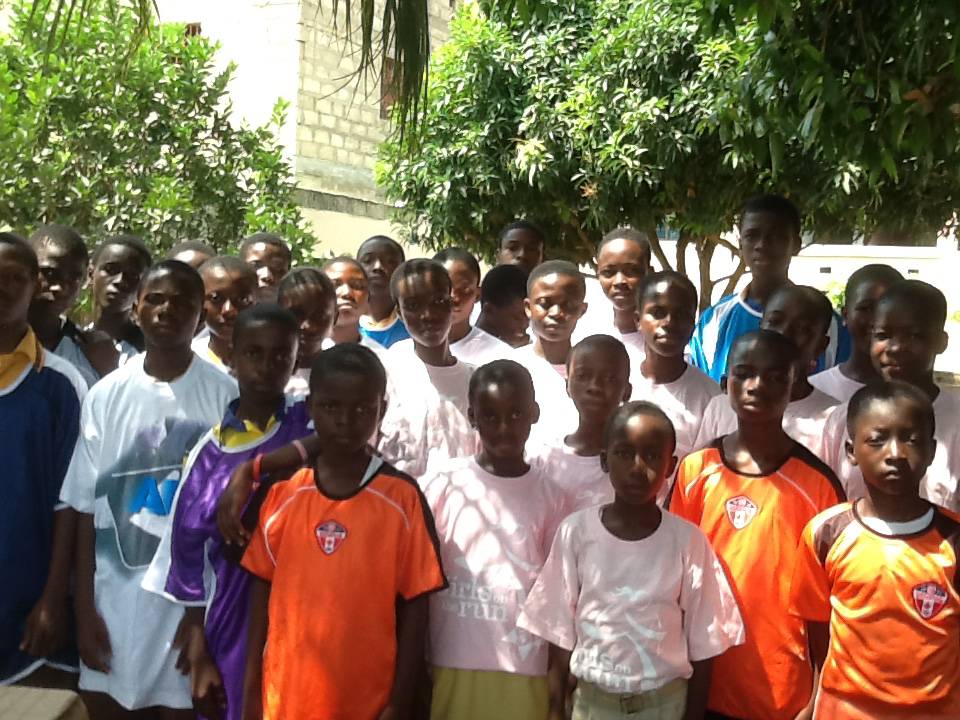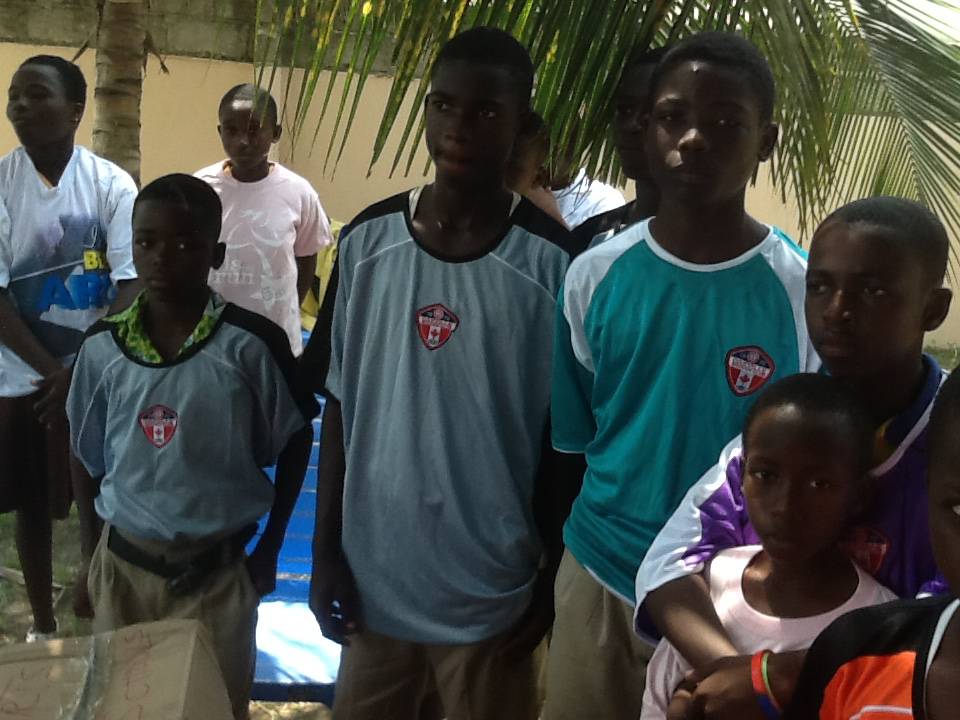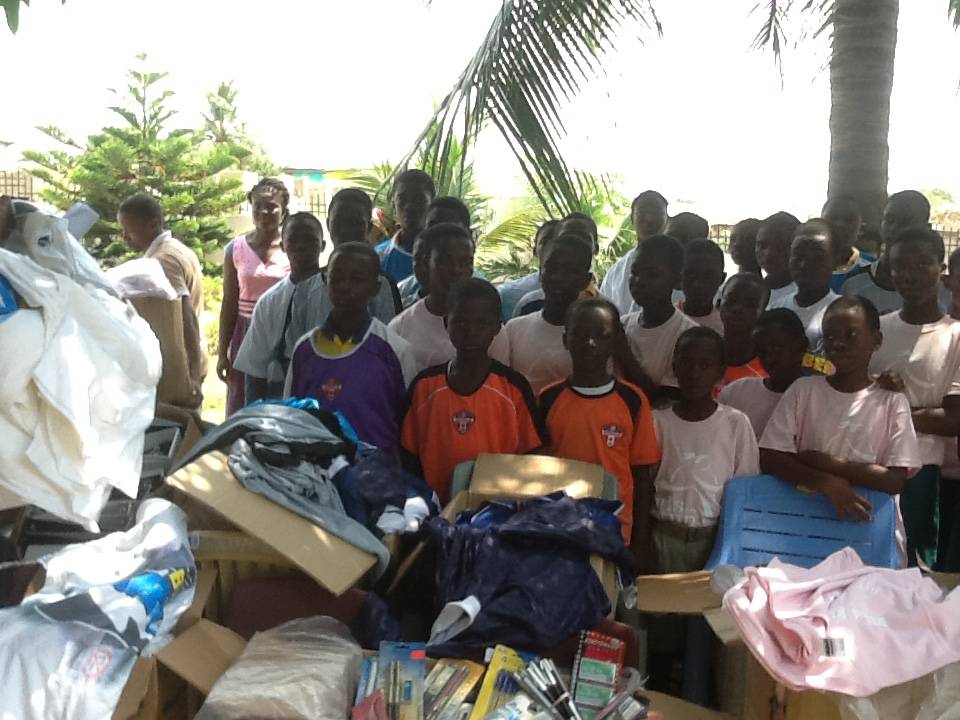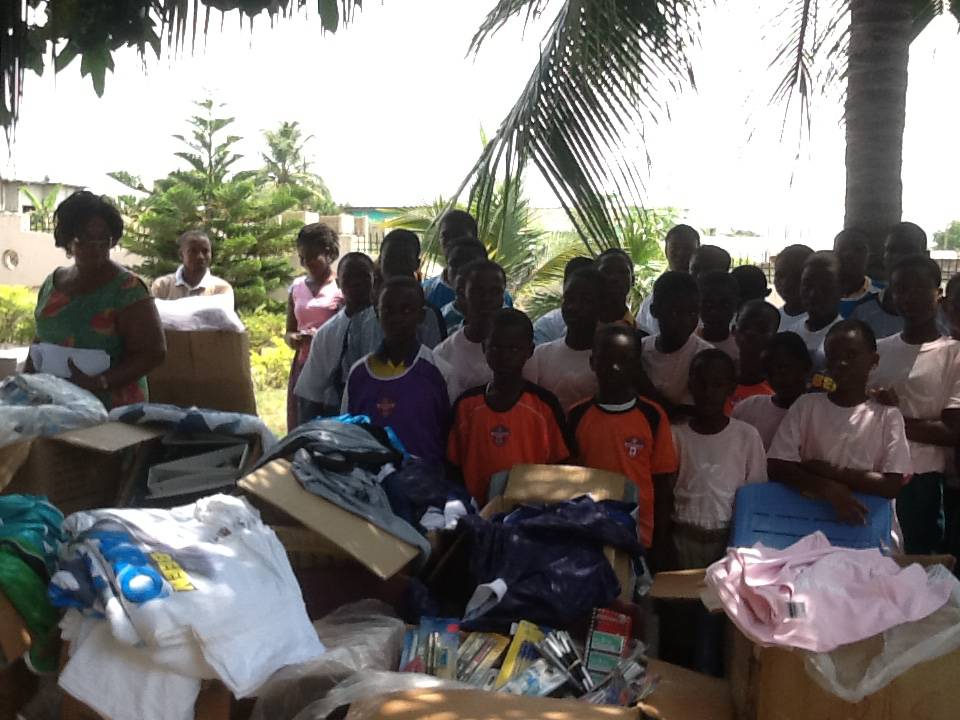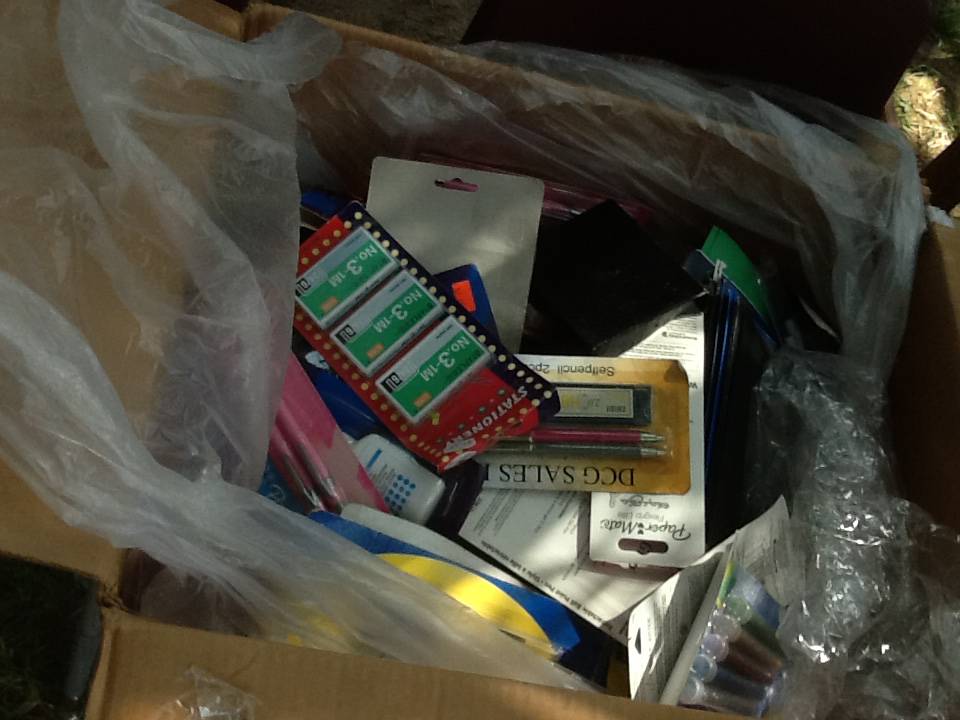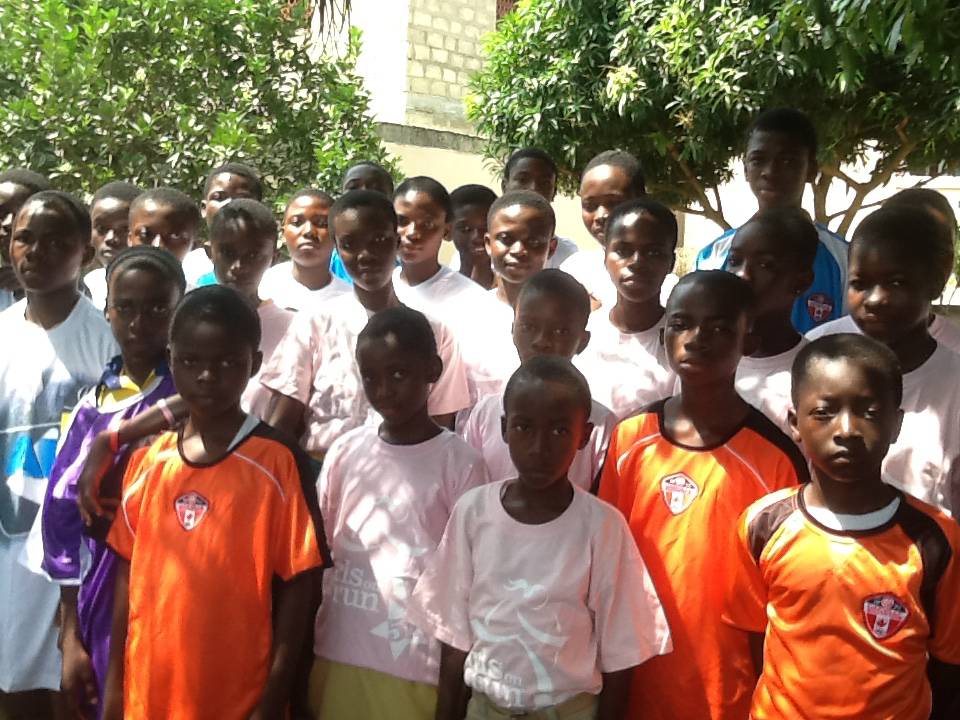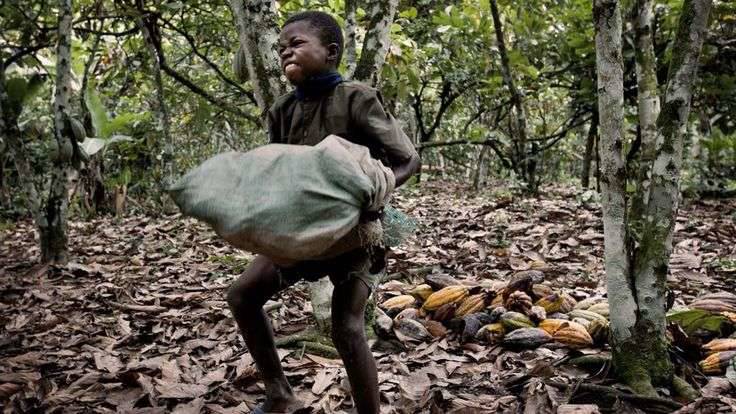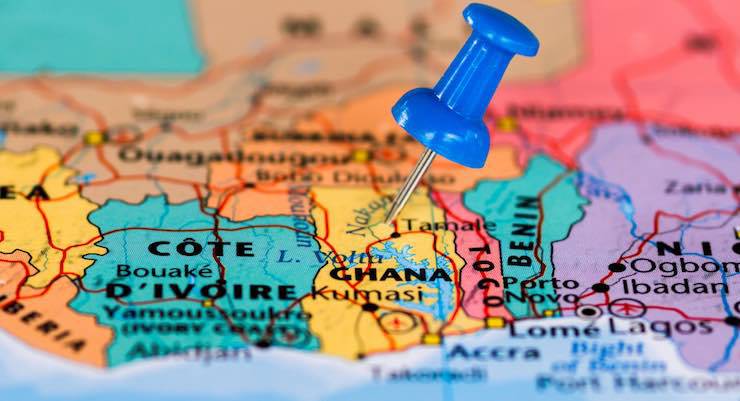Kasoa and Awutu Senya sub District Rural Youth Empowerment Project.
Fundraising campaign by
Reproductive Advocate Health Education Ghana
-
US$0.00Donated So Far
Brief Summary about the Organization:
Reproductive Advocate Health Education-Ghana abbreviated (RAHE-GHANA) is an independent Non-Profit development organization established in December 2015 with its head Office in Awutu Senya district in the Central Region of Ghana.
Reproductive Advocate Health Education-Ghana is established to undertake social and economic interventions that reduce vulnerability to poverty, disease, hunger and other famines situations, and to contribute to creation of social systems that promote peace, human welfare and the sustainability of the environment on which life depends, including promotion and protection of fundamental human rights in its geographical areas of mandate.
Our portfolio of work is based on the values motivation and obligation towards building the ability of individuals and communities to draw on a range of assets to effect change, particularly in rural and urban areas where livelihoods depend entirely on the sustainable use of natural resources.
Vision. A society in which the local population is empowered to equitable access to the whole spectrum of quality social services.
Mission: To work in a holistic manner towards improvement in the quality of life through interventions that reduce vulnerability to illiteracy, ignorance, poverty, disease, hunger and gross abuse of human rights.
Our Core Values:
- Paramount is the people we serve. To act with passion for the poor, the disadvantaged and the vulnerable, while upholding credibility and professionalism.
- Reproductive Advocate Health Education-Ghana (RAHE-GHANA), seeks to create an operating culture based on open and honest dialogue, team-working and collective decision-making.
- We value the knowledge and experience of our colleagues and institutional allies around the world and seek always to ensure that their ideas are accommodated in our decision-making processes.
- The organization, seeks always to be flexible and adaptable, responding quickly to changing circumstances and learning from practice.
- We will make every effort to capture what we learn from others, both what works and what doesn't in order to enhance our own knowledge and understanding, and to share this with others.
RAHE-GHANA broad objectives are to:
- Achieve social and economic development and improved quality of life for poor and disadvantaged rural households and communities with emphasis on women and children, youth, the elderly, the disabled persons, orphans and other specialized groups of vulnerable children within RAHE-GHANA geographical scope of operation.
- Promote and provide access to quality non-formal and formal basic education for children and school dropouts within deprived rural communities and by that, contributing to bridging the urban-rural gaps in basic education in Awutu Senya sub-region and also as long-term means to poverty reduction.
- Strengthen the capacity of small-scale farmers and households in value added agro-enterprise Technologies for increased income, improved nutrition, food security, availability and strength of seed chain.
- To increase access to safe and clean drinking water and sanitation so as to ultimately reduce water related and fecal-based diseases.
- To improve the health conditions of communities through elimination of health hazards in the environment that lead to untimely death among adults and children.
- To affirm the enduring values of peace, social justice and human dignity and integrity in settings where these values are not always taken for granted.
GOAL OF Reproductive Advocate Health Education-Ghana (RAHE-GHANA).
Our ultimate goal is to focus on improving the quality of health services and practices, concentrating on addressing the root causes of poverty and Gender Based Violence in the households and communities ,promoting equality and equity ,socio-economic empowerment of rural communities and improvement of the standards of living among all the vulnerable and marginalized groups through provision of income generating activities and Livelihood projects, while notably to deepen the Gospel Propagation of Jesus Christ and engagement of the entire segments of the population and stakeholders to ensure the promotion and protection of the inherent fundamental human rights.
Reproductive Advocate Health Education-Ghana Main Programme Areas.
RAHE-GHANA operates along six broad programme areas. These are: -
- Public Health.
- Education.
- Agricultural Development.
- Human Rights and Social Justice.
- Monitoring & Evaluation, Advocacy,
- Research and Information.
Geographical Scope of RAHE-GHANA and Target Groups.
Reproductive Advocate Health Education-Ghana over the last Two years has been operating within parts of the Central Region covering Three districts (Assin North, Ga South and Awutu Senya ) where our activities and operations are concentrated. However, if funds become available we intend to reach out to other regions in Ghana..
The Head Office of the Organisation:
Reproductive Advocate Health Education-Ghana (RAHE-GHANA) is located in 312/15 Congo Villa Ofankor Bojuase Road Kasoa. In the Central Region of Ghana.
Specific Target Groups of RAHE-GHANA Programmes and Projects.
Our direct target groups in all the districts include the several clusters of indigenous communities as well as several distressed peasant farming communities. The key targeted groups include Orphans and vulnerable children (OVC’s) the disabled persons, Youth both out of school and the unschooled, People living with HIV and AIDS (PHAs), the elderly persons, women heading families, widows and other specialized groups like the deaf, the blind, street children, children working under exploitative and hazardous conditions and young prostitutes.
Others include Grassroots Units as the Direct Beneficiaries.
Grassroots units who are often the direct beneficiaries of RAHE-GHANA activities include whole village communities led by their local community leaders, elders represented by the Parish Development Committees (PDCs) and community peer educators.
Other direct beneficiaries include community based organized groups such as women’s groups, village production groups (small-scale farmers- agro-processors, food marketers and market women), church groups, youth groups and children. Community project leaders most often elected by the project communities and trained by RAHE-GHANA liaise between local project managers and the community in order to ensure that project activities remain on track and on schedule. A number of strategies including Participatory Rapid Appraisal (PRA) Methods, Baseline Surveys and Rural Household Index, Need Assessment etc. are used to identify project target groups usually the poorest of the poor.
RAHE-GHANA Management also does have very regular direct technical-community interfaces with both prospective and actual project communities at all stages of the project cycle. These include the project conceptualization and formulation, design, implementation, monitoring and evaluation stages of the project. This is deemed crucial in order to afford target communities maximum participation in all facets of the project.
Organizational Structure of RAHE-GHANA :
- The organizational structure of RAHE-GHANA is composed of the following:
- Annual General Assembly
- Executive Committee
- Board of Directors Disability Unit
- The Secretariat (Executive Management), and
- Project Managers /Field Staff.
PROGRAM DESCRIPTION
Problem statement
The problem of Orphans and vulnerable children (OVC) is a worldwide one. In Ghana the problem became more visible in the 1970s and has been growing due to various problems including poverty, civil wars, family breakdown, poor parenting and child abandonment. The situation has been made worse by the HIV/AIDS pandemic, which accounts for a large percentage of orphans in this country.
According to the National Orphans and other Vulnerable Children Policy 2004, many orphaned children drop out of school, are forced to live on the streets or under exploitative conditions of labour, sexual abuse, prostitution and other forms of abuse. Many live in child-headed households where they have to fend for themselves and support their younger siblings.
Working in response to the above, the Government of GHANA introduced the Universal Primary Education (UPE). This has considerably increased the school intake for children between 7-11 years. However, as children progress to higher classes, demands increase including scholastic materials, fees for extra classes, among others. In many circumstances, children may not sit for the end of year exams and hence their love for school goes on decreasing.
In Kasoa Sub County where we work, of the 10 girls who drop out of school 6 marry at an early age, 2 escape to the urban areas and 2 may stay at home. About 30% of children who complete Primary Education are able to join Senior Secondary, yet only 40 of that will be able to complete Secondary Education.
The root cause for this is Poverty. This makes these children highly vulnerable to HIV/AIDS, Abuse and exploitation. There is a need to address the above by establishing appropriate interventions.
In retrospect, government seems to lack sufficient funds and mechanisms to carry out appropriate empowerment of these children. This process as it is, addresses the symptoms but not the primary causes of the problem; such children need to be empowered with sellable skills for self-sustenance, communities, schools, religious institutions and families need to understand their role in supporting Orphans and vulnerable children those who are in and out of school. Supportive systems must be put in place with active participation of all stakeholders to address this challenge. It is this critical ingredient of sellable vocational skills that this project seeks to add to the existing efforts.
In view of the above, RAHE GHANA wishes to carry out a project to keep these children in school and empower them with vocational skills to enable them gain a brighter future.
Proposed Solution
Recognizing the devastating effect that HIV/AIDS has had on Orphans and vulnerable children, adolescents and youth in GHANA, and the high degree of exposure to this disease in the rural areas, RAHE GHANA wishes to expand on its current activities to empower the vulnerable children of Kasoa and Awutu Senya sub District with Educational support and vocational skills to reduce their vulnerability.
Educational support will be provided through topping up school fees for those children who would otherwise drop out. Scholastic materials including exercise books, Textbooks, Pens, Geometry sets will be provided for these children. This Educational support component can best be funded by soliciting for individual sponsors for each child.
In addition, supportive school visits shall be made to the schools and homes to follow up the progress of the children. Our volunteers and staff will do this role by counseling and guiding these children.
The vocational skills will be imparted through direct provision of skills and through apprenticeship by specially identified and appraised Artisans. RAHE GHANA plans to expand the existing Tailoring Project to an annual capacity of 20 youth. 10 trainees will attend the morning session and 10 will attend the afternoon session. By the end of 12 months, 20 trainees will have graduated and then another intake will come. 12 sewing machines will be required for this project. They will serve for the next five years of the project hence a sustainable venture.
Through vocational training by apprenticeship, RAHE GHANA will increase the range of skills to be provided to 30 children to include Motor vehicle and motorcycle mechanics, welding and Hair dressing/cutting. RAHE GHANA shall identify artisans within the area who will train these youth by example. After a period of two years, the project shall use previously trained orphans to assist in the project as mentors to the project beneficiaries.
To ensure sustainability of the program, an economic empowerment component for the families is vital. This will help to reduce over dependency on the project. Every year, 20 families will benefit from a grant to strengthen their Agricultural enterprises. By the end of 5 years, 100 families will have benefited from this component. The selection of these families will largely depend on their vulnerability and poverty levels.
All beneficiaries of the project shall in addition be availed with training and sensitization facilities at our outreach center. At regular intervals seminars shall be organized for them and others within the communities on a range of salient issues such as STDs causes, prevention and management, Effects of Drug abuse, Stress and its effects, and others as will be identified along the project life. Individual and group counseling sessions shall be availed to them for psychosocial and spiritual support.
In the second year of the project, a Computer training facility shall be added to the program. This will target Primary School Leavers and Secondary school students to impart computer skills for them. Others out of school shall be also accommodated the priority are those in school.
To enhance the use of computer and the Internet resources, RAHE GHANA shall establish a business support center with expert staff and a continuous high-speed Internet connection in the nearby trading center where there is electricity.
The business support center shall among other things provide the following; high-speed Internet access, personalized websites, host emails, 1000 search engines monthly.
This business support center shall ensure that after completing the training, they (trainees) shall not be left out in the cold. They will have a center to revert to for support, advice and technical guidance. With the Internet connection, the center shall provide free online courses and free business software. At the same time, a call center where national and international calls can be made and answered shall be part of the business center.
Most important of all, the business center shall take the lead in locating suitable employers for the beneficiaries, supporting them to solve day-to-day problems and offering guidance and counseling to ensure success.
Guidance, counseling and psychosocial support are some of the interventions that are embedded in the whole project. The difficult living circumstances of the children often compel them to be aggressive, have low self-esteem, use drugs/substances and generally exhibit anti-social behavior. To counter this, RAHE GHANA’s social workers shall offer guidance and counseling to the beneficiaries to enable them first to recover from their traumatic experiences and cope with the demands of the life they will lead after training.
Being a social integration and empowerment intervention, the project shall work closely with the communities to ensure a conducive training and living environment for the orphans and vulnerable children
At the same time, RAHE GHANA shall network and work closely with other NGOs working with street children in Ghana to exchange information and avoid overlapping activities. This will avoid duplication of services, increase synergy and in the long run improve general child welfare while at the same time enhancing vulnerability- reducing strategies through discussions with parents and guardians as well as the communities.
PROJECT DESCRIPTION
Project Goal
To improve the welfare of orphans and other vulnerable children in Kasoa and Awutu Senya sub District.
Specific objectives
- To offer educational support for 200 orphans and vulnerable children per year who would otherwise drop out of school.
- To offer sellable vocational skills to 50 orphans and vulnerable children in Kasoa and Awutu Senya sub District per year.
- To improve the livelihood incomes for 100 families with a heavy burden for orphans and vulnerable children.
- To establish an integrated support system for orphans and vulnerable children in the 2 sub District.
Coverage and Target Population
The Project will cover Kasoa and Awutu Senya sub District. These sub District each have 14 sub parishes. According to the 2010 Population and Housing Census, these sub District have a population of over 69,384 people. But up to 62% of the people live in poverty. In this area, 14% of all children below 18 years have lost at least one parent. Children from poorer households are less likely to enroll in school. Although Universal Primary Education is operational in Ghana, there are other related costs that hinder school attendance. Such costs include among others, school uniform, exercise books, illness, examination fees. The survey results indicate that cost is the cause for 63% of the children who drop out of school.
This phenomenon could be reversed if there was a viable source of income in at least each of the households. However, this being a rural setting, the best family enterprise could be agricultural related but it was found that over 52% of the households report Start up capital as their major problem. It is against this background that this project is proposed.
The primary beneficiaries of this project are the orphans and vulnerable children aged 13-20 years who live in the project area, are out of school and lack skills to enable them earn a living.
Project Strategies
The project shall employ three main strategies to achieve its goal; Educational support. Economic empowerment, direct training, apprenticeship and community initiative/involvement. RAHE GHANA already has established small tailoring project, which will take in 100% of all the tailoring project beneficiaries. The others shall be trained through apprenticeship in collaboration with the communities.
Strategic Partnership
RAHE GHANA does not work in isolation. The organization has a working partnership with the religious institutions, the local government and other NGOs in the district, which identify with the mission of the organization.
Key activities
Objective one: To offer educational support for 200 orphans and vulnerable children per year who would otherwise drop out of school.
To achieve this objective the following activities shall be undertaken:
- Identification and registration of 200 orphans and vulnerable children having problems with educational support. – Two months
- Payment of school fees for 200 identified children – 1st month of every school term
- Provision of scholastic requirements for 200 identified children – 1st month of every school term
- School and home visitation by RAHE GHANA and volunteers – 12 months per year
- Children’s sensitization meetings, three times a year – 2nd week of every holiday
Objective Two: To offer sellable vocational skills to 100 orphans and vulnerable children in Kasoa and AWUTU SENYA sub District.
Activities under this objective will include;
- Community mobilization and sensitization meetings- 2 months.
- Identification of 100 project beneficiaries by RAHE GHANA and the community- 1 month
- Identification and appraisal of Artisans by RAHE GHANA to offer apprenticeship training, 1 tailoring trainer and 1 training assistant - 1 month.
- Procuring and fixing of the tailoring facilities. – 1 month
- Orientation of beneficiaries to the project (Life skills) by RAHE GHANA staff- 1 month
- Direct and apprenticeship vocational skills training –12 months.
- Direct training of 20 youth in Tailoring – 12 months
- Guidance and counseling of beneficiaries by experienced social workers- 12 months
- Supervision and assessment of vocational skills trainees by project staff-10 months
- Provision of food and food rations to the trainees by RAHE GHANA - 10 months
- Award of certificates after completion of training- 1 month
The activities relating top objective two shall start with the identification of the beneficiaries by RAHE GHANA and the communities. This will be followed by orientation of beneficiaries, identification/appraisal of Artisans and tailoring trainers and placement of beneficiaries for vocational training, procurement of the tailoring equipment, all done by the RAHE GHANA staff. The above activities will result into periodic supervision of beneficiaries, provision of food, guidance/counseling, and progress appraisal and eventually award of certificates at the end of the training.
Objective Three: To improve the livelihood incomes for 100 families with a heavy burden for orphans and vulnerable children.
The following activities will be carried out for the attainment of this objective.
- Identification of 40 vulnerable families with low income levels – 1 month
- Identification of training facilitators – 2 weeks
- Training of 40 family heads in small business management – 2 weeks
- Identification of viable economic activities by the beneficiaries with support from RAHE GHANA – 1 week
- Disbursement of grant to 20 identified beneficiaries.
- Follow up visits for advice and progress review of the activities – 12 months a year.
The purpose of training 40 family heads is to allow for a wider range for selecting the most vulnerable families. Priority will be given to families headed by children, women and old, weak grand mothers/fathers.
Objective Four: To establish an integrated support system for orphans and vulnerable children in 2 sub District.
The activities relating to this objective shall include:
- Community sensitization and awareness meetings – 1 Month
- Furnishing of RAHE GHANA outreach center offices – 1 month
- Identification, recruitment and appraisal of 1 Project Officer, 1 Social Worker and 1 Administrative Assistant for the program. – 2 months
- Procurement of the necessary office requirement for the smooth running of the program – 1 month
- Popularization of the GHANA Child Statute and the Rights of the child to stem child abuse – 2 months
- Training of local leaders and stakeholders on management of OVC related projects in their areas – 12 months
- Family visiting-family guidance and counseling – 12 months
- Award of a start up tool kit after vocational skills training – 12th month of the year
- Establishment of a Computer and business support center – 1st 6 months of the second year.
To ensure continued community support for these orphans and other vulnerable children into their communities, the project shall conduct periodic community sensitization meetings, equip the outreach center with staff and equipment to run the program, popularize child rights to avoid child abuse, train local leaders, visit/advise families and provide start up kits to enable the beneficiaries earn a living.
MONITORING AND EVALUATION
Monitoring
Monitoring shall be an ongoing activity that shall be done on a day-to-day basis and specified periods of times. In particular, the following monitoring activities shall take place;
Monthly planning and review meetings; All project staff and Projects Committee shall meet monthly (organizational practice) to review progress and plan for the coming month. This shall work to take stock of the positives and address the negatives in the previous month so as to ensure that the project is going according to plan.
Assessment of Children’s progress reports: At the end of every term, children being supported in school will submit in their school reports. RAHE GHANA and our volunteers will assist these children identify and improve on their weaknesses in class. A report about the general performance shall be prepared to be included in the quarterly and annual reports.
Child supervision and appraisal reports; All beneficiaries shall be supervised on a weekly basis. During these visits, guidance and counseling shall take place to ensure that the child appreciates and takes the training with seriousness.
Quarterly progress reports; It is organizational policy that at the end of every quarter and subsequently at the end of the year, a project progress report is written. This same standard shall apply to this project, as the Director and Project Officer shall compile the report. It should be noted that these reports are of both a financial and activity nature.
Children, youth and beneficiaries’ meetings; Quarterly meetings for beneficiaries in each component shall be organized in the 14 sub parishes to give them an opportunity to express their views about the conduct of the project and how they think they can best benefit from it.
Home, School and site visits: Our staff and volunteers will make both regular and surprise visits to the schools, homes and site of the beneficiaries. Reports shall be then made and documented for the findings.
Evaluation
In addition to the final project evaluation, which will be undertaken by an external consultant, the following evaluation activities shall take place;
Internally, project staff shall present a progress report to the Board at the end of every quarter. The agents of the donor shall visit training places and workshops or any aspects of the project as and when they deem necessary.
The periodic monitoring reports shall be used to inform the end of project evaluation that shall be undertaken by an external consultant that will be agreed upon by both parties.
PAST PERFORMANCE AND ORGANIZATIONAL CAPABILITY
Organizational Background
Reproductive Advocate Health Education-Ghana (RAHE GHANA) is a not for profit Community Based Organization formed in 2014 but was legally registered in 2015. RAHE GHANA’s mission is to empower the needy and vulnerable children with skills to identify, explore and utilize their full potential for their social, economic and spiritual development in a sustainable manner.
Our main objectives are five i.e.
- To empower target communities at the grassroots with skills and knowledge to address their problems especially, AIDS, Poverty and other social barriers.
- To facilitate the creation of an enabling environment for the holistic growth and development of orphans, vulnerable children, widows, People with AIDS, and the disadvantaged.
- To mobilize the communities and the target groups towards self help initiatives for them to gain their dignity.
- To initiate and develop educational, health and economic development projects where the target group actively participate in their design and successful implementation.
- To mobilize material, financial and technical support in form of grants, gifts, and technical expertise within and outside Ghana for the advancement of the organizational programs and projects.
The ‘Modus-operandi’ of the charity is to work in conjunction with other organizations, in order to avoid the duplication of service in the face of scarce resources.
RAHE GHANA undertakes projects, in order to achieve sustainability and maximize the return to the projects with active participation of young people and the disadvantaged groups of people. We encourage playing a supportive role by ensuring the beneficiaries and the community play an active role in the identification of the needs, design, implementation and evaluation of projects
RAHE GHANA with support from Precious Love Ministry Int runs activities with young people where they design activities to create positive change in their communities.
RAHE GHANA is also implementing a Piggery project to assist families with improving the living standards of the orphans in their households. So far 30 families have benefited out of this project.
RAHE GHANA is supporting 25 orphans and vulnerable children in school. This is the third year of this initiative. There is a remarkable positive change in the lives of these children.
The organization is governed by a Board of Directors, a Projects Committee and a general assembly, which manages, sets and implements policies.
Currently RAHE GHANA activities are run by a team of committed volunteers headed by the Director.
On the local scene, RAHE GHANA has been working for the empowerment and improved plight of vulnerable children since 2014 as a charity organization. Since that time, 1,400 orphans and vulnerable children have been reached through our community and school outreach seminars.
Organizational Capability
The organization boasts of experienced and committed volunteers and a supportive community with which it works for the improvement of the lives of the children.
It is important to note while all is being done, our volunteers handle these children as if they were their own. It is of no doubt that when RAHE GHANA is adequately funded, there will be great transformation in the lives of these children. This testifies to the organization’s capacity to impart skills and empower orphans and vulnerable children.
The organization’s background shows that, the organization is not seeking to undertake something it has never done before. The organization is only seeking to serve a wider area and to increase on the range of skills and empowerment available to the orphans.
Rewards
Organizer
- Reproductive Advocate Health Education Ghana
- Campaign Owner
No updates for this campaign just yet


